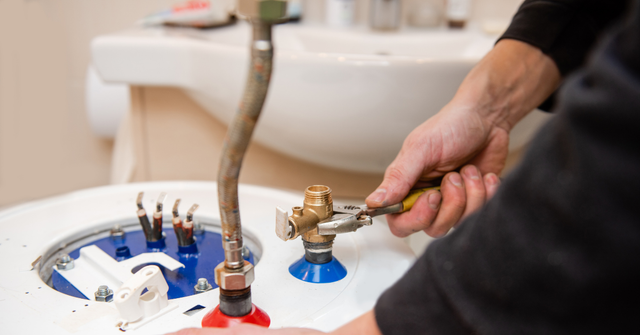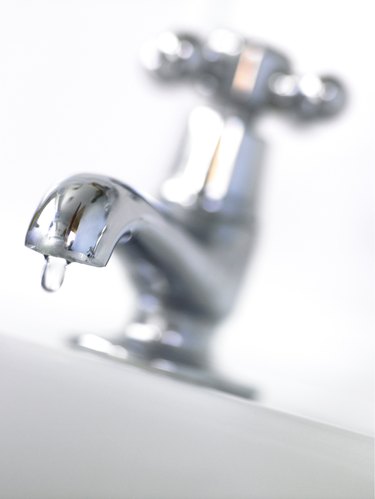Leading Methods for Rectifying Low Water Pressure in Your Home
Leading Methods for Rectifying Low Water Pressure in Your Home
Blog Article
What are your thoughts on Dealing with Low Water Pressure in Your Home?

Low tide pressure in your home can be an irritating issue, affecting every little thing from bathing to cleaning meals. If you're experiencing weak water circulation, there are numerous possible reasons and options to explore. In this overview, we'll talk about typical factors for low tide pressure and functional steps to deal with the concern effectively.
Intro to Low Tide Pressure
Low tide pressure occurs when the circulation of water from your taps, showers, and other components is weaker than usual. This can make day-to-day tasks much more tough and much less efficient. Recognizing the causes of low tide pressure is vital to finding the right option.
Usual Root Causes Of Low Tide Pressure
Faulty Pressure Regulators
Pressure regulatory authorities are in charge of preserving regular water stress in your home. If they malfunction, it can result in low tide stress or unequal flow throughout your house.
Metropolitan Water Issues
Often, the issue exists outside your home. Community supply of water concerns, such as main line leaks or maintenance work, can temporarily minimize water stress in your location.
Pipeline Obstructions
With time, pipes can become blocked with natural resource, sediment, or debris, restricting the circulation of water. This is a common issue in older homes with galvanized steel pipelines.
Deterioration
Deterioration within pipelines can bring about leaks and reduced water stress. Corrosion buildup can constrict water circulation, specifically in aging plumbing systems.
Just How to Identify Low Water Stress
Examining Pipelines
Examine noticeable pipes for indications of leakages, corrosion, or obstructions. Focus on any kind of unusual sounds, such as banging or rattling pipes, which might show concerns within the plumbing system.
Consulting with a Plumber
If you're unable to identify the reason for low tide pressure, consider hiring a professional plumber to conduct a comprehensive assessment. They can identify underlying concerns and suggest suitable solutions.
Inspecting Taps and Components
Begin by evaluating the water pressure at various faucets and fixtures throughout your home. If the concern is isolated to particular locations, it may show localized issues.
DIY Solutions to Repair Low Water Stress
Flushing Water Heater
Sediment build-up in the water heater can restrict flow and reduce efficiency. Purging the tank periodically assists get rid of debris and maintain optimal performance.
Examining Stress Regulatory Authority
Guarantee that the stress regulatory authority is working correctly. Changing or changing the regulator can help bring back appropriate water stress throughout your home.
Cleaning Aerators and Showerheads
Mineral deposits can gather in aerators and showerheads, reducing water circulation. Get rid of and clean up these parts frequently to boost water pressure.
Cleaning Clogs in Pipes
For small clogs, try making use of a plumbing snake or chemical drain cleaner to clear obstructions in pipelines. Be cautious when utilizing chemicals and follow safety guidelines.
When to Call a Professional Plumber
If DIY initiatives fall short to deal with the problem or if you suspect substantial plumbing troubles, it's best to seek support from a licensed plumber. They have the know-how and devices to attend to complex concerns safely and properly.
Safety Nets to Maintain Water Stress
Mounting a Pressure Booster
Take into consideration mounting a pressure booster pump to improve water pressure in areas with consistently reduced flow. This can be particularly valuable for multi-story homes or residential properties with high-demand components.
Monitoring Water Use
Be mindful of water use practices and prevent ill-using the plumbing system. Easy changes, such as incredible showers and washing lots, can help maintain appropriate water pressure.
Regular Maintenance
Schedule regular upkeep for your plumbing system to stop problems such as deterioration, leakages, and clogs. Resolving minor problems early can aid avoid more considerable repair services later on.
Conclusion
Dealing with low water stress can be discouraging, yet determining the underlying reasons and executing appropriate remedies can restore optimal flow throughout your home. Whether it's cleansing aerators, examining pipes, or speaking with a plumber, taking positive steps can ensure a constant supply of water for your day-to-day needs.
How to Fix Low Water Pressure In Your Home
Municipal Water Supply Issues
Scheduled maintenance, high demand, and water main breaks are all potential causes for low water pressure within a city or county’s water lines. While there’s not much you can do to personally fix a problem with your city or county’s water supply system, you can play a big role in documenting the issue and alerting those who can.
How to fix it:
Ask your neighbors if they are experiencing any issues with low water pressure. If multiple homes are affected, it’s likely related to the city’s water line. Contact the local Water Authority to see if there is any maintenance taking place that might be affecting your supply. Also let them know of your specific issues. If other homeowners report the same issues, they’ll know that there could be a larger issue to look into. Faulty Fixtures
A damaged or clogged shower head, faucet or appliance is the first thing we’d suggest checking, especially if low water pressure appears to be isolated to a specific area of your home.
How to fix it:
First, turn off the main water supply to your home. Check the affected appliances for build-up or debris. In the case of a faucet, you can simply unscrew the aerator at the tip of the faucet. Showerheads should be fully detached from the water pipe. While the appliances are detached, you may want to check the water supply to determine if the fixtures were in fact the issue. To clean, soak the showerhead or aerator in vinegar and brush off any visible debris. Reattach the fixtures and check the water pressure again. If it is still low, there is likely a deeper issue at hand, which can be determined by a professional plumber. Pipe Obstructions
Mineral deposits, rust or other debris within water pipes can lead to blockages or corrosion over time.
How to fix it:
When you think of a clog, you probably think of a drain clog. While there are many DIY solutions to clearing a drain, clogs in a water pipe will almost always require the help of a professional plumber. A plumber will be able to locate the affected pipe and clean out any debris or mineral deposit buildup. In severe cases, the pipe may need to be replaced. Your plumber might also recommend a water softening system to remove the minerals from your home’s water supply that can contribute to pipe blockages over time.
Plumbing Leak
Undetected water line leaks can divert water away from your residential pipes, reducing the water pressure in your fixtures.
How to fix it:
Check your water meter by turning off all water sources and monitoring the meter for any movement, which could be a clear indicator of a potential leak. Check all visible pipes for signs of leaking, including water stains, active dripping or damp spots around the pipe. Inspect fixtures, including faucets and showerheads, for any drips. Test the pressure but recording the pressure with the main water valve shut off. Leave off for a few hours and test again. A significant drop in pressure is a clear sign of a leak. https://kiddcoplumbing.com/plumbing-blog/how-to-fix-low-water-pressure/

I'm very interested by 9 Reasons for Low Water Pressure in Your House and I'm hoping you liked the new page. Loved our write up? Please quickly share it. Let someone else check it out. Thanks a bunch for your time. Please stop by our website back soon.
Click Here Report this page